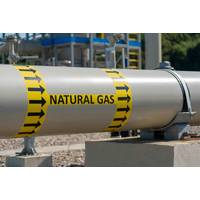Libyan's Zueitina Port To Open After Damages Assessed
Libya's eastern oil port of Zueitina, which had been occupied by rebels as part of an eight-month oil blockade, will reopen after damage at its facilities has been assessed, the country's justice minister said on Sunday.
Salah al-Merghani also told reporters in the eastern city of Benghazi that a committee to investigate oil corruption had been formed, as agreed under a deal between the government and rebels to end a blockade of eastern oil ports.
The reopening of four oil export terminal has been delayed with the rebels accusing the government of not fulfilling all parts of the deal, such as paying financial compensation.
Under the agreement the rebels will be reintegrated in a state oil security force from which they defected last summer when they occupied ports to press for a share of oil exports.
"We are working day and night on the salary issue," Merghani said, adding that the ministry of defence was going through staff lists to make sure payments would be made according to the law.
He warned that failure of the agreement could lead to bloodshed in the North African country struggling with turmoil three years after the ouster of Muammar Gaddafi.
"A conflict over resources in the centre of Libya will lead to violence. The Libyan people need to avoid that," he said.
Diplomats expect both sides to implement the deal eventually as the country badly needs the oil revenue, but tactical manoeuvres and mutual mistrust are likely to cause delays.
The row is part of chaos in the OPEC producer where the government cannot control militias who helped oust Gaddafi but have held on to their weapons to make demands by seizing oilfields or government ministries.
So far the only port to resume work is Hariga in Tobruk, which has a daily capacity of 110,000 barrels.
Both Zueitina and Hariga had meant to reopen immediately after the signing of the deal almost three weeks ago, with the larger terminals Ras Lanuf and Es Sider restarting after more talks.
Sources close to the talks say part of the problem is that some rebels at Zueitina terminal had demanded to be put on the government payroll, a strategy used before in post-Gaddafi Libya to put pressure on a weak central government.
Protests at oilfields and pipelines have also crippled oil production in the west, reducing output to around 220,000 bpd from 1.4 million bpd last summer.
(Reporting by Ayman al-Warfalli, Ulf Laessing and Feras Bosalum; Editing by Sonya Hepinstall and Stephen Powell)






